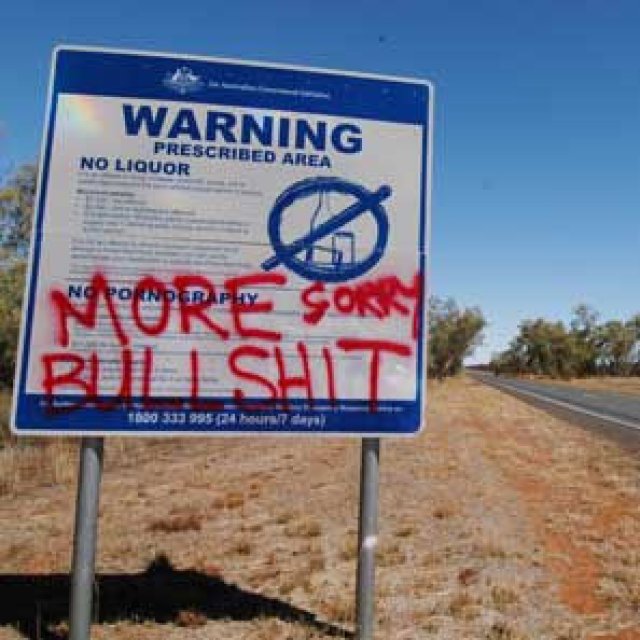
The President of the Uniting Church in Australia Assembly, Rev. Alistair Macrae, released the statement below on June 29.
* * *
Over the last few months, thousands of Indigenous and non-Indigenous Australians have raised their voices in opposition to the discriminatory aspects of the “Stronger Futures” legislation.
During this time the Uniting Church in Australia has worked closely with our Indigenous brothers and sisters and their supporters, particularly in the Northern Territory. We have supported the work of our Northern Synod and the Uniting Aboriginal and Islander Christian Congress who have consistently called for a genuine partnership between government and Indigenous peoples. We have supported the calls of retired Uniting Church minister Rev. Dr Djiniyni Gondarra and the Yolngu Nations Assembly for a change in direction.
Despite our best efforts the Stronger Futures bills passed the Senate in the early hours of this morning. The new laws perpetuate the policies of the Northern Territory Intervention for up to 10 years. They also extend them to other marginalised communities.
Our contention that this policy had no basis in evidence was ignored. Our protests that there had been no meaningful consultation with Indigenous leaders in Territory communities fell on deaf ears. In a week in which MPs made much of attempting to garner support across the Chamber in the name of a human rights emergency (asylum seekers), bipartisan support was no problem when it came to ignoring the human rights of Australia’s First Peoples.
Stronger Futures employs punitive, top-down measures that have done little to improve the lives or outcomes for Indigenous groups. Indigenous communities have experienced few perceivable benefits from the governmental policies of the last five years.
Suicide rates, particularly amongst young people, have dramatically increased since the Intervention. In NSW, which has the largest Indigenous population, the youth suicide rate is one young person in every 100,000. In the Northern Territory, however, it is now more than 30 in 100,000.
The official unemployment rate is at least four times higher for Indigenous Australians than for the rest of the population, with this rate rising even higher in remote communities. Around 30% of Indigenous children don’t attend school on a regular basis, while the housing crisis facing Indigenous people has been described as “alarming” by the Australian Institute of Health and Welfare.
Since 2007, Indigenous incarceration rates have risen by 41%. These figures were investigated by a research team at the University of Queensland, who found that the increase can largely be explained by a jump in prosecutions for minor motor vehicle offences such as unlicensed driving.
These facts are shocking but they should not be surprising considering how current policy is being implemented. It is well understood, but conveniently ignored in much public debate and alarmingly ignored in the Stronger Futures legislation, that the most effective policy reforms are those developed in partnership with Indigenous communities.
Many of the answers we seek as a community are contained in well-written and evidence-led reports that the government’s own departments have produced. It is almost incomprehensible that the government and the opposition fail to pay attention to what they know is necessary for positive and long-lasting change.
The Uniting Church in Australia has been calling for a paradigm shift. Our political leaders must rise above the election cycle and commit funds and resources to practical programs that are evidence-based with accountable and transparent processes. The programs need to be developed and implemented in partnership with Indigenous communities rather than imposed upon them.
The Uniting Church, through our social justice arm UnitingJustice, has called for high quality teachers and more Indigenous teacher-training programs and the reinstatement of Indigenous languages to create learning environments that attract and retain students.
We have called for increased and targeted funding in Territory schools after discovering that an additional $79 million per year would be required to expand the number of teachers. We have called for $295 million in infrastructure including teacher housing. We have called for the reinstatement of customary law in bail and sentencing decisions in accordance with Article 34 of the Declaration of the Rights of Indigenous Peoples.
We have called for the replacement of “fly-in/fly-out” consultations so that people on homelands have sufficient time to travel to meetings or hearings. We have called for the full reintroduction and adequate funding of the former Community Development Employment Projects (CDEP) program to ensure that training and meaningful work is available to Indigenous people in remote communities.
We have called for the establishment of a floor price on alcohol in the Territory, to be introduced in conjunction with alcohol management programs that are developed by each community to address the differing contexts. We have called for housing and infrastructure investment to be made not solely in designated growth towns, but also in homeland centres.
These are not just our calls. Many other advocacy groups engaging in this field have been pleading for practical and specific changes such as these. All of these recommendations have been detailed in government reports spanning the last ten years. Most have been ignored in the Stronger Futures legislation.
Unlike the government, we worked in partnership with our Indigenous brothers and sisters and we listened. The government has not. Self-determination for the First Peoples must be more than rhetoric.
And so today we join Indigenous Australians in mourning another lost opportunity for true reconciliation.
By the time these laws are wound back, I fear a future government will have to make another Apology.
It will take much prayer, apology and compassion to heal the damage of what has been a disastrous week in Australian politics.
